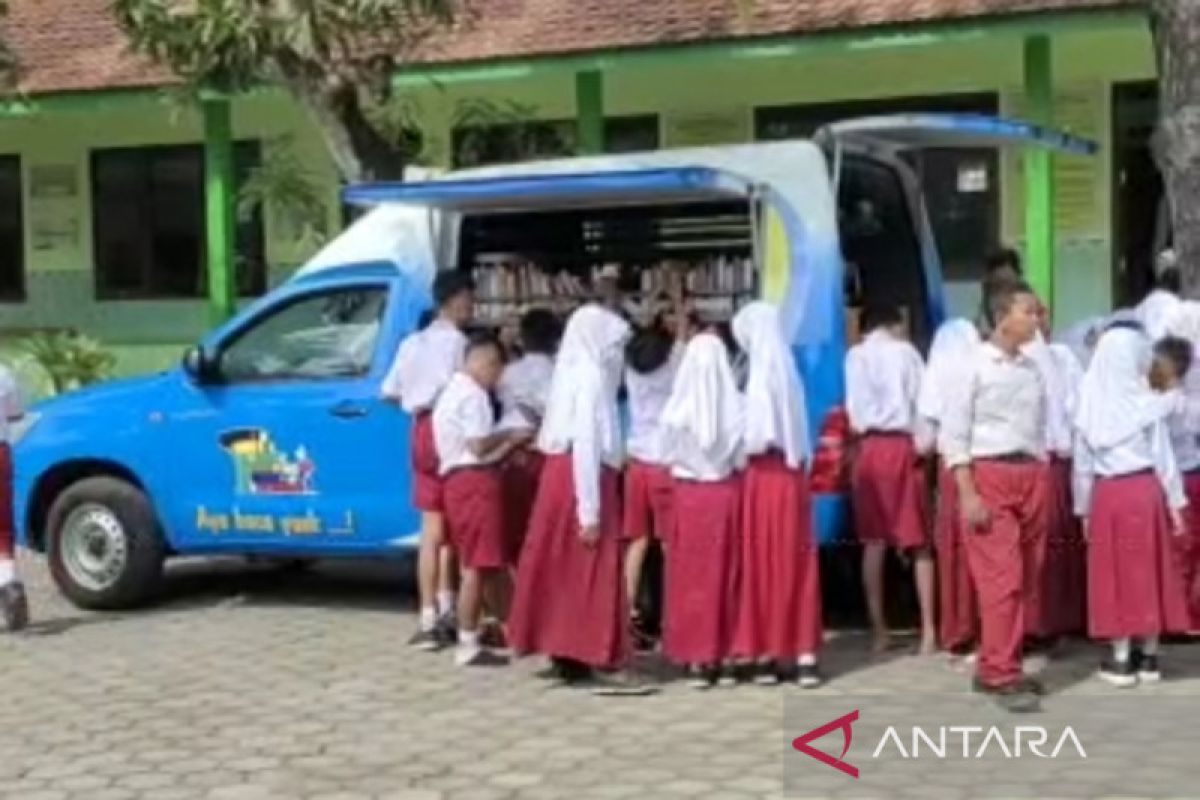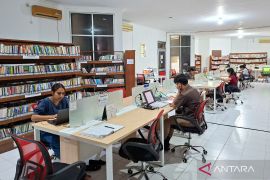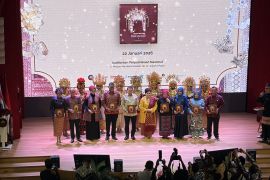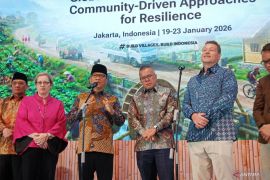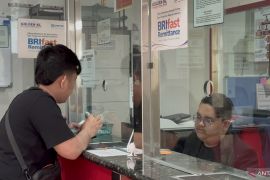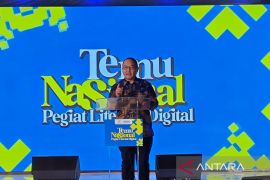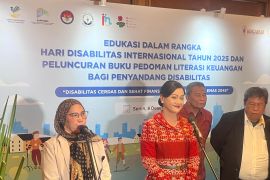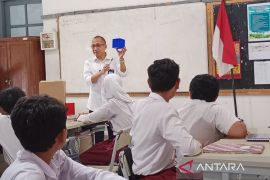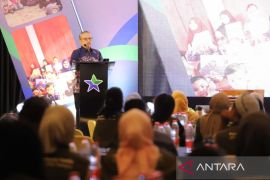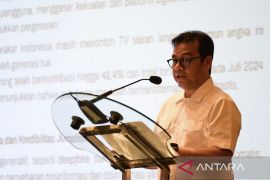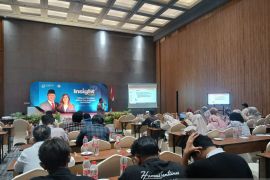In villages, the promotion of literacy is conducted through the development of village libraries or community reading parks, field schools, community centers, and education for village teenagers.
Initiatives to promote literacy have been undertaken by several villages in Indonesia.
In Purwo Bakti Village, Bathin III Sub-district, Bungo District, Jambi Province, ambulances pick up children to visit the village library that also doubles up as a place for residents, mostly farmers, to share their experiences and improve their knowledge.
In Pangandon Village, Kadipaten Sub-district, Majalengka District, West Java, the village government is cooperating with the Community Learning Activities Center (PKBM) to facilitate street children to partake in Package B (equal to junior high school) and Package C (equal to high school) school programs. Every year, Rp25 million is allocated from the village budget (APBDes) for the programs.
Director General of Village and Rural Development at the Ministry of Villages, Development of Disadvantaged Regions, and Transmigration Sugito stated that the potential and resources of a village would not have a significant meaning if not backed by literacy.
A literacy movement is inseparable from the progress in village development. To this end, collaboration is deemed necessary.
Education becomes a prerequisite and an effective means of improving the quality of human resources in villages, starting from early childhood education (PAUD) to the development of skills for villagers, including the provision of reading parks or village libraries.
In the literacy movement, there is a transfer of knowledge, both through libraries and digitalization, which has currently become indispensable in the process of building literacy knowledge.
The promotion of literacy in villages can be conducted by improving the quality of management of village libraries or community reading parks, such as by improving the capacity, procuring books, renovating libraries, and providing internet connection.
In addition, it requires the cooperation of village libraries and school libraries, facilitation in historiography, development of field schools or community learning activities, and education for village teenagers.
Villages' commitment to the development of literacy is deemed quite good. Based on the Village Development Index (IDM), as many as 31,410 villages in Indonesia have village libraries or community reading parks. Hence, some 42,641 villages have not yet had village libraries or community reading parks.
Assistance is needed for the development of literacy in villages, especially in the development of village libraries and community reading parks, so that the community's interest in literacy can increase and support the improvement in quality of village human resources.
One of the priorities in the use of village funds in 2023 is improving the quality of human resources in villages. To this end, village governments are expected to make an allocation in village funds for literacy improvement.
Some of the efforts for improving the quality of human resources are the procurement, construction, development, and maintenance of village libraries or community reading parks, including the procurement of books and other reading materials.
Literacy and the community's welfare
The government, through the National Development Planning Agency (Bappenas), is encouraging literacy improvement for the development of research and innovation. Literacy contributes to the intelligence of the nation's children and the welfare of the community.
Bappenas' Director of Religious, Educational, and Cultural Affairs Amich Alhumami stated that the development of libraries is part of the government's strategy to bolster and improve people's literacy skills.
The culture of literacy among Indonesian people can contribute to the welfare of the community, considering the close relationship between literacy and equality.
The government is making efforts to realize a quality community life that is part of its responsibilities by enlightening the nation as well as improving the general public's welfare by increasing literacy skills.
Some of the efforts made are library revitalization that is conducted by providing sufficient funds and offering supporting technical programs aimed at honing the literacy skills of Indonesians.
Almumami assessed that libraries and education are part of the cultural strategy to realize a literate and skilled society that is reflected through cognitive skills.
Literacy has become key to the development of innovation and research for improving economic productivity.
The National Library (Perpusnas) has the Social Inclusion-Based Library Transformation (TPBIS) Program that has been supported by Bappenas since 2018 and is aimed at creating a prosperous community.
Head of the Planning and Finance Bureau of Perpusnas Joko Santoso highlighted that in order to achieve the goal, it not only needs to build a culture of literacy but also a literacy ecosystem.
From 2018 until now, the TPBIS program has reached 399 districts and cities and 3,985 villages, with 2,133,918 people participating in 85,776 activities at libraries.
Participants received training to improve their skills as well as participated in promotional activities, such as information dissemination, literacy tours, and storytelling.
In addition, technical guidance was provided to 1,804 regional library staff and 2,196 village library managers, while training was offered to 79 master trainers and 415 regional facilitators.
In 2023, the number of the program's partners reached 450 village libraries, with the number of training activities reaching 1,661 in January. The activities involved 70,165 participants.
Related news: Minister pushes provision of books to schools to improve literacy
Related news: Minister highlights importance of commodity futures trading literacy
Related news: Minister asks youth to develop reading habit
Translator: Indriani, Raka Adji
Editor: Azis Kurmala
Copyright © ANTARA 2023
